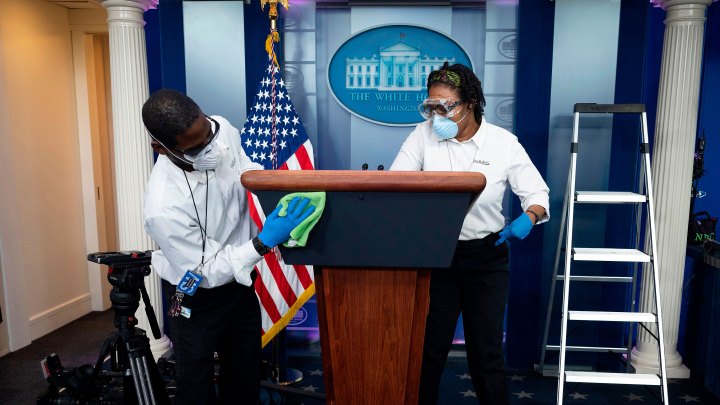
Domestic workers still don’t have safety protections on the job
Domestic workers still don’t have safety protections on the job

The White House COVID-19 outbreak is a high-profile demonstration of the risk of workplace exposure to the disease, highlighting the importance of the protections provided to workers under the Occupational Safety and Health Act of 1970. But notably left out under that federal law are domestic workers, and a California bill that sought to finally extend protections to them was vetoed by the governor last week.
The bill would have laid out new safety regulations for hundreds of thousands of house cleaners, nannies and elder care workers. After Gov. Gavin Newsom’s veto, dozens of domestic workers gathered in front of a state building in Los Angeles on Thursday to protest the decision.
The California Domestic Workers Coalition has long fought to gain protections for people exposed to harsh cleaning chemicals, hazardous wildfire debris or who suffer injury from repetitive physical tasks. Maegan Ortiz, who helps organize domestic workers, said the pandemic has exacerbated the dangers.
“We’ve heard a number of cases, unfortunately, of women exposed to COVID in the homes that they clean and bringing it back home to their families,” she said.
Domestic workers are overwhelmingly women, the majority women of color. They’re paid lower than average wages and most get no sick time, unemployment, health insurance or the right to organize, said Julia Wolfe with the Economic Policy Institute.
“It’s really difficult to think of a more vulnerable workforce,” she said.
In his veto statement, Newsom said requiring private households to take on employer obligations for safety would be onerous and that enforcement would be impossible.
But Debbie Berkowitz with the National Employment Law Project said more can be done.
“We need to really figure out a way to get information to household employers on some of the key and critical hazards these workers face,” she said, noting standardized training materials or guidelines on protective equipment would go a long way.
There’s a lot happening in the world. Through it all, Marketplace is here for you.
You rely on Marketplace to break down the world’s events and tell you how it affects you in a fact-based, approachable way. We rely on your financial support to keep making that possible.
Your donation today powers the independent journalism that you rely on. For just $5/month, you can help sustain Marketplace so we can keep reporting on the things that matter to you.












